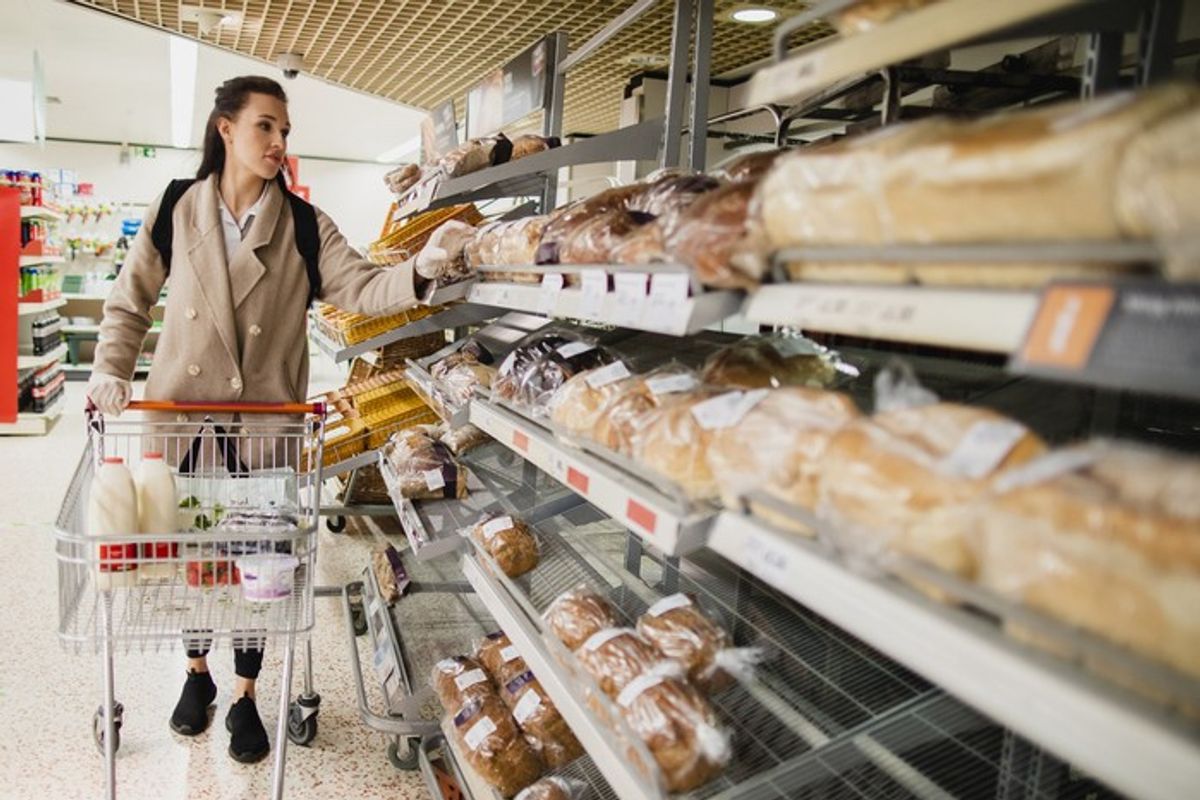The price of bread, milk and cheese is expected to rise sharply in the coming months as the cost-of-living crisis makes staple foods more expensive, an industry figure has said.
Karen Betts, Chief Executive Officer of the Food and Drink Federation (FDF), this week told PoliticsHome that massive hikes in production costs had already forced companies to raise food prices, and that grocery bills will probably continue growing into early next year.
She said baked goods like bread and biscuits are most exposed to price rises heading into the winter because bakeries are "intense users" of ovens which rely on gas, which is rapidly becoming more expensive. They are also "big users" of grain which Ukraine exports in large quantities worldwide.
"Bakery is really feeling the pinch," she told PoliticsHome.
She added that dairy products like milk, cheese and butter are also seeing significant price rises, with the price of low-fat milk increasing by around a quarter due to widespread inflation. Tinned goods are also becoming more expensive due to the growing cost of metal.
The cost-of-living crisis is now the dominant issue in British politics, with Conservative leadership candidates Liz Truss and Rishi Sunak coming under growing pressure to explain how they would protect millions of households from soaring energy bills this autumn if they become Prime Minister.
Meanwhile, the Bank of England predicted that the UK was set for a 15-month recession and would see inflation across the board hit 13 percent in 2022.
Cost-of-living pressures also extend to food, however, with a trip to the supermarket becoming increasingly expensive and prices of everyday items showing no sign of coming down soon.
Betts further added that input costs had already increased "enormously" for food manufacturers, leading to price rises across the board.
This, she warned, was forcing some companies to consider dropping certain product lines altogether to save money, leading to reduced range on shop shelves, while suppliers face having to walk away from contracts because rising costs mean they can't afford to fulfil them.
“You have got a situation where the costs of inputs that manufacturers are buying or using to put into food are going up exponentially- energy, ingredients, materials, packaging, logistics," Betts said.
It is hard to predict how high food prices will go and when inflation finally starts to tail off, she added.
She, however, feels that food inflation will not peak until early 2023, potentially coinciding with the point at which Ofgem is expected to increase the household energy cap to well over £4,000.
"We don't think that food price inflation has peaked yet," Betts said. “We've been seeing ingredients and energy rising in cost for more than a year now and those input costs are finding their way through into food prices, but there is still some way to go," she said.
“Ukraine inflation is not really making itself felt until the autumn. Much of the inflation that we have seen so far has actually been a result of the coronavirus."
A Defra spokesperson said: “Food prices are rising around the world because of the impact of the invasion of Ukraine, particularly on energy prices. In the UK we have a robust food supply, and grow much of what we eat ourselves.
"We are watching prices very carefully and will keep working closely with industry, including the FDF, to support our farmers, food businesses and the public.”


